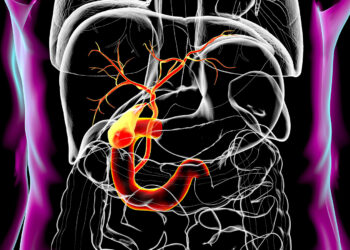
They have been called “poison”, “addictive” and “junk”, but however you describe ultra-processed foods (UPFs), it is clear they are the nutritional bogeyman du jour. That fear is reasonable, given their consumption has been linked to a dizzying array of health effects, from obesity and type 2 diabetes, to anxiety and depression.
Their dominance has changed food systems so rapidly that much of what we eat today would be unrecognisable to even our recent ancestors. We certainly haven’t adapted to them, evolutionarily.
It is no wonder that they are the main target of strategies to address diet-related chronic disease in the UK and US. Even so, we think all-out UPF panic needs to give way to a more nuanced conversation. It is a mistake to paint flavoured yogurt and wholegrain bread with the same scaremongering brush as cakes and sugary cereal. Just because a food is ultra-processed doesn’t mean it is unhealthy. Our approach to them should reflect what the science says so far.
When people consume more UPFs, saturated fat, sodium and sugar intake rise, and they get less fibre, protein and beneficial micronutrients – the opposite of healthful eating. But when it comes to how UPFs cause weight gain, Kevin’s recent research found they tend to be overconsumed when energy dense (more calories per bite) or hyperpalatable (featuring pairs of nutrients that don’t typically co-occur naturally – such as high salt and fat, carb and salt or sugar and fat).
On the flip side, when people eat meals with lots of UPFs that aren’t energy dense and hyperpalatable, Kevin’s work revealed that they don’t gain weight. They can even lose weight when not necessarily setting out to do so on such diets.
These findings have enormous implications, not only for our personal choices, but for nutrition policy and regulation. Rather than targeting all UPFs, we should focus on those that fail to meet the nutritional standards of healthy food. The US Food and Drug Administration (FDA) is moving in this direction, having recently issued a definition of what constitutes a “healthy” food. It is similar to the UK’s nutritional profiling system and accounts for ingredients from food categories people need to eat more of, such as vegetables, fruits and whole grains, while also limiting sugar, sodium and saturated fat. By targeting UPFs that also have a high calorie density or contain hyperpalatable nutrient combinations, we can zero in on the products that seem to be the greatest culprits in promoting obesity and other diet-related conditions.
To tackle those specific foods, we must apply a battery of public health policies similar to those that cut tobacco consumption: marketing restrictions, mandatory labelling and aggressive taxes. We also need to introduce policies that make healthy food more convenient, affordable and widely available, as well as incentivise companies to make their UPFs healthier – think frozen, wholegrain-crust pizza topped with vegetables.
Some UPFs are already considered healthy by the FDA’s standard (again, think wholegrain bread or yogurt). None of these would be the subject of such policies or regulations. Many of us also rely on the likes of UPF pasta sauces, hummus, frozen dinners, canned beans, bouillons and breads, which can be an easy and affordable part of a healthy diet. That is why being specific about which UPFs are most likely to cause harm is important.
UPFs aren’t going anywhere for now, and the story of their science is still being written. So, let’s move beyond panic towards a healthy co-existence by understanding how some of them cause harm and acting accordingly.
Julia Belluz and Kevin Hall are the co-authors of Food Intelligence: The science of how food both nourishes and harms us
Topics:
Source link : https://www.newscientist.com/article/mg26835641-400-why-not-all-ultra-processed-foods-are-bad-for-you/?utm_campaign=RSS%7CNSNS&utm_source=NSNS&utm_medium=RSS&utm_content=home
Author :
Publish date : 2025-10-08 18:00:00
Copyright for syndicated content belongs to the linked Source.














